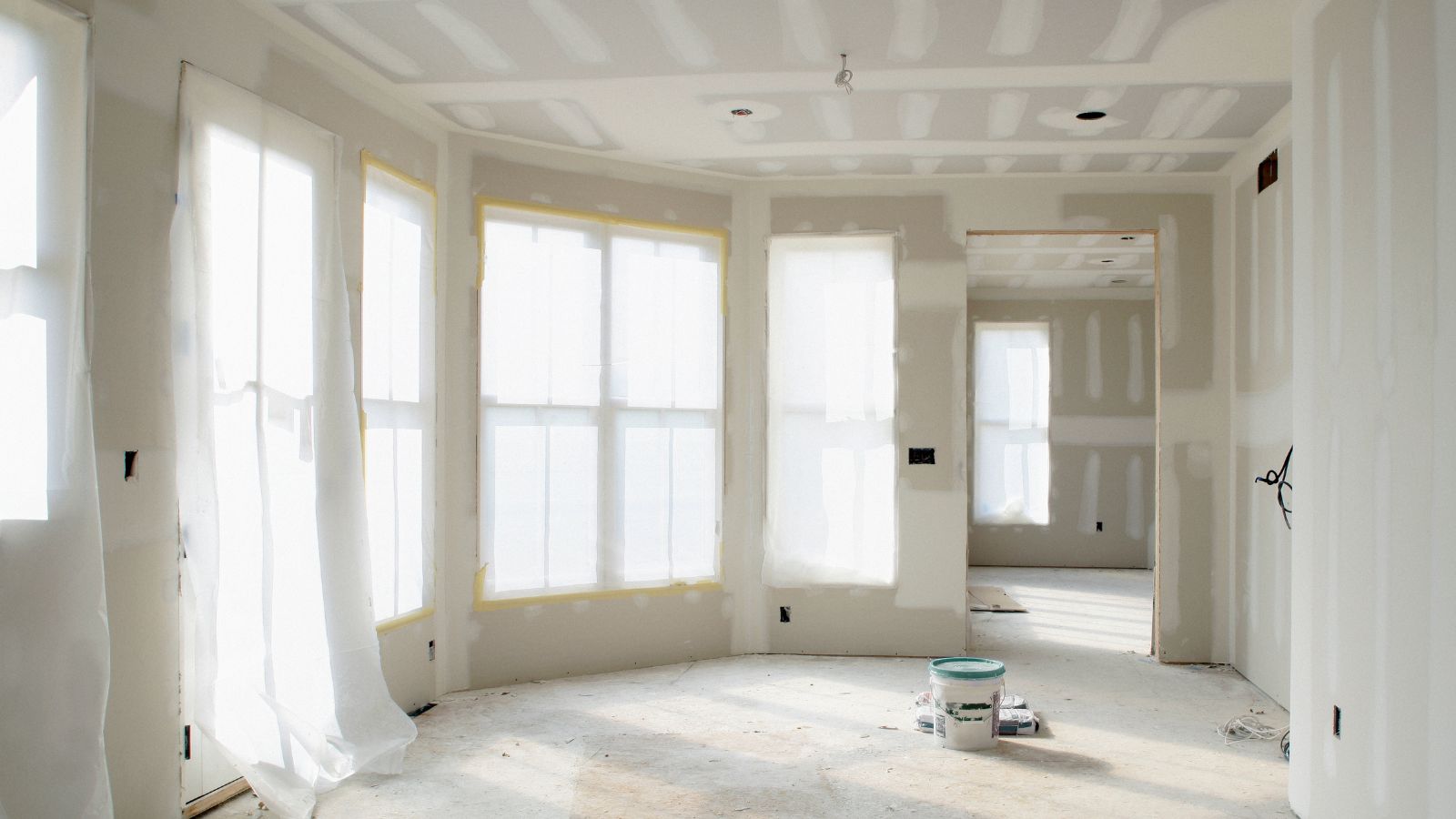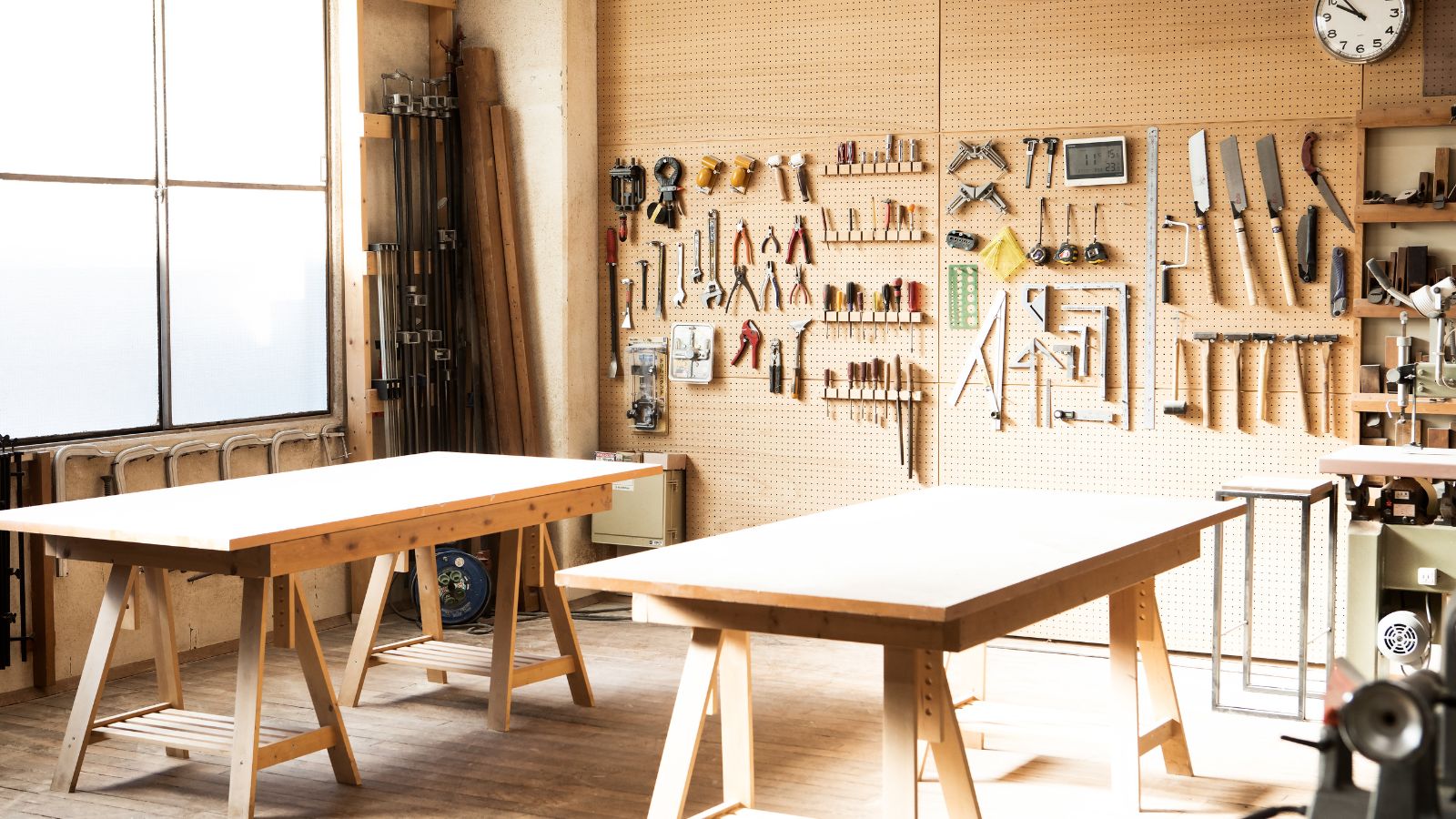I'm about to complete a home renovation – this is how I avoided the dreaded 'reno burnout'
Don't let the stress of living on a building site stop your project in its tracks. Follow our tips to rediscover your makeover mojo


There are things you can expect when you embark on a major home-improvement project: dust, disruption and debt being three of them.
But what you might not anticipate is to suffer home renovation burnout. The point where you're just over it, physically weary and ready to give up – but the job's only half finished, rooms are still undecorated and nothing in your home is where it is supposed to be.
I have been renovating a Victorian house for more years than I care to think about, and though the finish line may be in sight, my enthusiasm for carrying on has waned to the extent that sometimes I think I'll never reach it.
How I swerved renovation burnout
Below, I share the ways you can beat the burnout, stay motivated, and finally complete what you started. The pay off will not only be a beautiful home to live in that functions as you need it to, but you'll be free of the burden of having to give up evenings and weekends to a seemingly endless reno to-do list.

The causes of renovation burnout
Though many of us can start a makeover full of positivity for the changes we’re going to make and excitement at getting to design our own spaces, research by Toolstation showed that 65% of women found their well-being took a hit during a renovation, as did 50% of men.
The biggest causes of burnout can include work dragging on far longer than anticipated, spiraling costs, the noise and disruption of living on-site, and the frustration of unreliable workers. All of these can leave you feeling emotionally and physically drained and anxious about your finances. Burnout could even affect your relationship with your partner or family.
Associated clinical professor of psychiatry at UCLA Walter Brakkelmans said that a remodel rated a six on a scale of one to ten (one being a fender bender and 10 being the loss of a child) in terms of the stress it placed on a relationship.

How to overcome the stress points
1. Work taking too long
Creating a timeline is an important part of renovation planning prep, but a failure to complete within it can lead to frustration and disappointment. In my experience, this is compounded if it leads to missing a self-imposed deadline.
Last year, I was forced to abandon my plans (again) to host Christmas when my flooring contractor found the kitchen fitter had made a fairly fundamental mistake of putting the legs too far underneath the cupboards – making it impossible to attach the kickboards and finish the flooring.
If you are setting a timeline, be generous with it. Anticipate that there will be delays and unexpected issues that crop up. And if you are doing things yourself, you’re not going to do it as quickly as the professionals. It is always better to overestimate how long everything will take and be pleasantly surprised if you finish early.
Try not to set deadlines in the winter when you have to deal with bad weather, dark nights and the distractions of the holiday season that’ll make any spare time you’ve set aside to finish your project just disappear.

2. Burgeoning budgets
There's no joy in creating the bedroom of dreams if you spend sleepless nights wondering how you’re going to pay off the debts it has left you with.
Be as detailed as possible when setting your renovation budget, including the contingency, and determine how you will finance it. You need a figure you are comfortable with and confident that you can earn/afford before you start. If you’re not, it'll give you time to revise your plans and devise a compromise you can live with physically and financially.
Then keep an eagle eye on your spending, jotting everything down so costs don't unexpectedly spiral. All those visits to The Home Depot can add up if you are not keeping track. Sell what you can of your old furniture and appliances on eBay and Craigslist and add to the reno pot.
And don’t forget to explore if you are eligible for loans or grants to fund your improvements, such as the HUD home improvement loan programs offered by US Department of Housing and Urban Development.
3. Dealing with contractors
Bad contractors can be the bane of a home-improvement project and make you want to just throw in the towel and live in a half-completed home rather than let them cross your threshold again.
I’ve had to pay twice and sometimes three times to get the work of inept plasterers, carpenters, plumbers and electricians redone because the results were dangerous, incomplete or quite obviously bad.
They are not easy to avoid, even if you’ve done your due diligence and got at least three quotes first and references from neighbors. Keep as close an eye on their progress as possible. Check that things look how you expected it too at every stage and don’t be afraid to challenge their clever (in their eyes) workarounds.
If you let them get away with it and then leave, their shortcuts will annoy you every time you see them and take away from any pleasure you might get from the rest of the makeover.
If you do get a good one who does what you want or tells you when they can’t and allows you to reach a compromise together and who also tidies up after themselves, hang onto them. They are the holy grail of handy persons.
4. Living in chaos
If you stay in the house when the work is carrying on around you, this could be the thing that breaks you. No matter how much you try to kid yourself that it’s just like camping, preparing family meals using a hotplate and microwave and washing up in the tub can get old very quickly. There will be dust everywhere, you’ll find yourself living out of bags and boxes and you’ll constantly be misplacing things as you move your possessions from one room to another to give the contractors space to renovate and decorate.
But if the finances don’t allow you to rent temporary accommodation, there may be no alternative but to try and exist within the space. Use the discomfort as a motivator to get the work done as quickly as possible. You can also start any DIY projects early and finish late if you are already on site – though for the sake of good neighborly relations, don’t break out the power tools when people are still sleeping.
If you can squeeze some money out of the budget, explore the option of keeping some of your furniture, soft furnishings and clothes you aren’t using in storage. This will protect them and will mean you aren’t endlessly rearranging tables, chairs and heavy units. It’ll make your home feel less cluttered and easier to navigate.
Keep what possessions you do need as tidy as possible. If you are doing a lot of the makeover yourself, get a toolbox for all your DIY tools, so you don’t keep losing – or treading on – hammers, nails, screwdrivers, and tape measures.
If your home is also your office, it might be impossible to function with a cacophony of contractors drilling and banging away in the background. Give yourself a break and relocate to a coffee shop or anywhere there is good WiFi so you can work and hold meetings in peace.

5. A lack of routine
'Something that can heavily contribute to renovation burnout is the consistent lack of normalcy in your day-to-day routine,' says Seamus Nally, a rental management expert at TurboTenant. 'When you are undergoing renovations, whether or not you are the one physically doing them, chances are it is impacting your daily routine in some way or another.
'Maybe you are having to stay at a hotel and live out of suitcases. Maybe you are having to deal with constant loud construction noises whenever you are home. Maybe you aren’t able to use your kitchen so you have to go out for every single meal.
'Changes like these can be draining, especially when they drag out, yet you still have to do all of your regular daily tasks like work, take the kids to school/practice, care for pets, etc. My best advice for dealing with this is to try to create a new routine that is as easy for you as possible.'

Seamus is the CEO of Colorado-based TurboTenant a one-stop shop for small unit landlords to help grow their rentals, and their rentals and provide comfortable homes, well-maintained homes for tenants
6. Incomplete paperwork
Planning ahead can reduce the risk of burnout, whether it is making a schedule for jobs or creating a decorating mood board so you can order the right paints, tiles, flooring and light fixtures.
It also applies to your paperwork. Familiarise yourself with the local building codes and regulations so you can make sure your renovation complies with requirements and is structurally sound and safe. If it doesn’t you could be hit with delays or fines. Discuss with your contractors any and all permits you’ll need.
Most importantly, make sure that you have appropriate insurance in place should anything go wrong. You don’t want your hard-earned budget to be eaten up by having to make repairs if a tool hits the wrong pipe or your prop jacks fail.

Tips to beat the burnout
1. Create a room to relax in. A haven that is feels as normal as possible as is free from the evidence of renovation. This will be where you can escape to when it starts to get too much.
2. When you start a room, finish it. Don’t stop at 90 percent done. It’ll either nag away at you or you’ll get so used to it it'll never get completed.
3. Mark off the milestones. You’ll feel that you are accomplishing something and less overwhelmed by what you still have to do.
4. Include breaks in your timeline for a holiday or day out. You can’t sustain 100 percent commitment to your reno for weeks and months on end or you will burnout. Get some R&R to renew your enthusiasm.
5. Try not to let life distract you. It's easy to get caught up in the daily routine of work and chores, and then spend evenings vegging out in front of a screen. But the more you do that, the longer it will drag on and you’ll never get your home back.
6. Hire a project manager to supervise the work and keep things on track. It’ll take one job off your hands and it'll probably get done quicker.
Budget can be a big factor that will impact the success of your transformation plans. Follow our guide to the most expensive home renovations to avoid overspending.
Sign up to the Homes & Gardens newsletter
Design expertise in your inbox – from inspiring decorating ideas and beautiful celebrity homes to practical gardening advice and shopping round-ups.

Alison is a contributing gardens writer for Homes & Gardens, writing on a range of topics from plant care to garden design. She has recently landscaped the outside space of her Victorian home, replacing crazy paving and cracked slabs with new lawn, and is currently cultivating a fruit bed.
-
 Triangular shaped garden ideas – landscape designers share 9 ingenious ways to redesign your corner plot
Triangular shaped garden ideas – landscape designers share 9 ingenious ways to redesign your corner plotExpert tips for planning, planting and finessing a triangular shaped plot, so you can savour the space year round
By Jill Morgan
-
 These are the 6 things designers say you should never put in a small living room
These are the 6 things designers say you should never put in a small living roomThe items that should be banned from a small living room are right here along with what you should opt for instead
By Sarah Warwick
-
 The 3 bedroom renovations our home editors deeply regretted – and what they wish they’d done instead
The 3 bedroom renovations our home editors deeply regretted – and what they wish they’d done insteadSwap sorrow for success by avoiding what our editors learned the hard way
By Ottilie Blackhall
-
 Are you risking a fine with your home project? Expert contractors reveal how to check if you need a permit – plus 17 surprising upgrades that need permission
Are you risking a fine with your home project? Expert contractors reveal how to check if you need a permit – plus 17 surprising upgrades that need permissionContractors urge you not to make this dire misstep
By Chiana Dickson
-
 How to prepare your house for extreme weather – 10 future-proofing home upgrades to help keep your family safe and well in an emergency
How to prepare your house for extreme weather – 10 future-proofing home upgrades to help keep your family safe and well in an emergencyBeing prepared is protective for your home's longevity, security and safety
By Chiana Dickson
-
 7 money-saving tips you need to know before renovating your home
7 money-saving tips you need to know before renovating your homeOur experts share their insider knowledge for keeping your renovation costs down
By Ottilie Blackhall
-
 Pros reveal how to make a DIY saw guide for perfect straight cuts on any home renovation project
Pros reveal how to make a DIY saw guide for perfect straight cuts on any home renovation projectSay goodbye to unwanted wonky cuts forever
By Steve Jenkins
-
 4-week countdown – If you're mid-renovation like me, here's how I make my messy house presentable for the festive season, starting now
4-week countdown – If you're mid-renovation like me, here's how I make my messy house presentable for the festive season, starting nowWho's to say Christmas can't feel special in a half-finished renovation?
By Amy Reeves
-
 Yes, this is the right time to renovate your kitchen before Christmas – 4 DIY projects you can complete in the next few weeks
Yes, this is the right time to renovate your kitchen before Christmas – 4 DIY projects you can complete in the next few weeksFind out what updates are possible before Turkey time
By Amy Reeves
-
 The 7 quick, inexpensive and transformative jobs I'm doing to spruce up my guest bathroom ahead of hosting season
The 7 quick, inexpensive and transformative jobs I'm doing to spruce up my guest bathroom ahead of hosting seasonI decided to give my guest bathroom a makeover ahead of the festivities
By Natasha Brinsmead